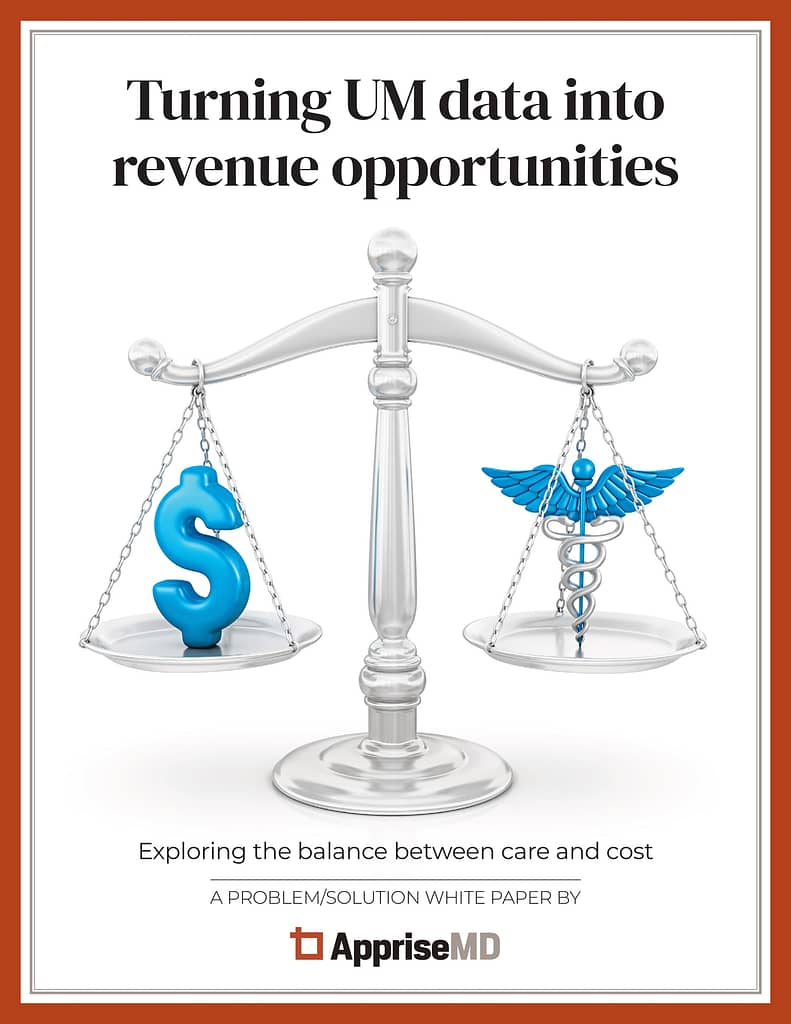A Collection of White Papers from AppriseMD
The Use of AI in Claims Denials
A Compendium of Artificial Intelligence Use in Utilization Review
Is your hospital losing money over the weekend?
The impact of weekend utilization review on reimbursement
Turning UM Data into Revenue Opportunities
Exploring the balance between cost and care
Utilization management (UM) data analysis transforms revenue cycle and care management practices, yielding greater earnings to support hospital and health system operations and sustainability while improving the timely delivery of quality care.
UM balances the delivery of the right care at the right time in the right setting. Providing the right, or medically necessary care, depends upon providing patients with treatment needed to achieve the best possible medical outcome without over- or under-utilizing services. The complexity of the cost structure in the U.S. healthcare system adds another hurdle. Even though medical necessity is the foundation upon which UM rests, it does not exist in a vacuum. It is intricately linked to cost. Achieving a utilization management balance can improve a hospital’s quality of care while at the same time reducing costs.

Implementing the 2024 CMS Final Rule
Five Points of Focus for Utilization Review Teams
2024 CMS Final Rule

Beyond the Pandemic
Part 1: Sicker Patients and Longer Stays, a compendium of research by AppriseMD
Part 1
In 2020, hospitals encountered a crisis unlike any they had faced before. More than two years later, hospitals are still coping with the repercussions of the COVID-19 pandemic both in terms of patient volumes and financial challenges.

Dealing with Denials
An in-depth look at the causes of inpatient denials and what healthcare organizations can do to keep them from happening.
Read more
Ultimately hospitals and other healthcare providers can no longer ignore the impact inpatient denials can have on their cash flow. Ninety percent of all denials are preventable, so why aren’t more denials being prevented? If an organization takes a focused and unremitting approach to tackling this problem, it can see improvements in lowering denials and increasing overturned denials. This approach requires persistence and commitment to proper documentation, plus a clear utilization review strategy together with a team approach. The result will help support the financial health and future sustainability of the organization.

Beyond the Pandemic
Part 2: How Hospitals Can Adapt to the New Reality, a compendium of research by AppriseMD.
Part 2
In Part 2 of our compendium of research, we look at strategies to bend hospital utilization curves by right sizing length of stay as well as keys to addressing post-disc.



